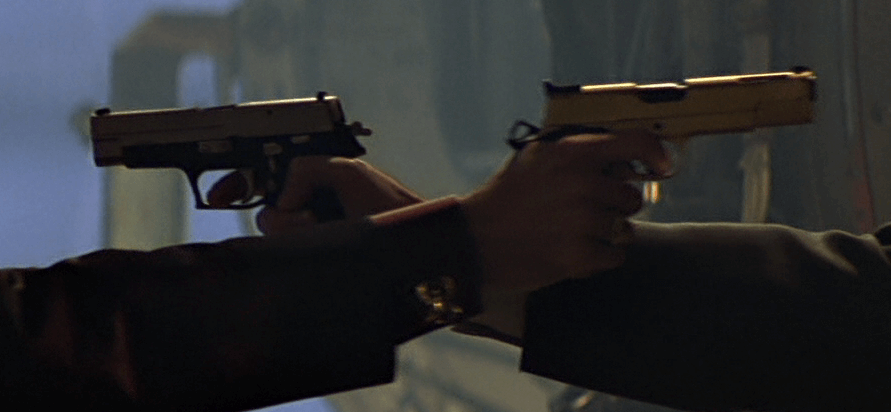Every Sin Is The Lesser Of Two Evils

Consider the following:
“…will God incense his ire/For such a petty Trespass, and not praise/ Rather your dauntless virtue…?”
-Satan speaks to Eve in Book IX of Paradise Lost
“The only way to get rid of a temptation is to yield to it. Resist it, and your soul grows sick with longing for the things it has forbidden to itself, with desire for what its monstrous laws have made monstrous and unlawful.”
-Lord Henry to Dorian Gray in Wilde’s novel
Anyone who examines the Satanic temptation in Paradise Lost will invariably conclude that every sin is the lesser of two evils. A man does not truly understand what temptation is unless he understands that lust always presents itself as the lesser of two evils, and theft always presents itself as the lesser of two evils, as do pride and gluttony and all the rest. The devil says, “Better to steal than for your children to starve,” or, “Better to give in to lust than lose the whole afternoon in distraction.” The devil says, “Better to lie to your students than admit your failings. If you admit your failings, your students will lose respect for you, for school, for the whole academic project,” and so a teacher surrenders a bit of his soul in exchange for the attention and admiration of his pupils— the lesser of two evils, plain and simple.
The world is a fallen place, full of unenviable decisions. Better to brave a bad decision than to refrain from choosing at all
Sin always presents itself as a way out, an escape. Sin is a godsend. When discerned rightly, the lesser of two evils is no evil at all, but virtuous. A little sin is no sin at all when it is committed to keep from committing a greater sin. Why, it takes prudence and wisdom to discern which sin is smaller, which evil is lesser, does it not? And how could something arrived at by prudence and wisdom be wrong? We sin to avoid hassling others, to avoid hurting the feelings of others, to avoid pestering wives, to avoid insulting husbands. The world is a fallen place, full of unenviable decisions. Better to brave a bad decision than to refrain from choosing at all, no?
Sin often comes to us in a similar fashion as wisdom. Sin imitates wisdom. Wisdom often demands some kind of suffering, as well. There is, in some sense, an “evil” which attends wisdom: the “evil” of physical suffering, or self-abnegation, or humiliation. Both the wise choice and the sinful choice involve something unpleasant. The difference between the two has to do with the timing of the suffering. Vice grants pleasure now, virtue grants pleasure later. The man who chooses evil (albeit the smaller of two evils) is typically choosing to suffer later, whereas the man who yields to the exacting standards of wisdom chooses to suffer now. The wise man lives by a promise, not by the flesh. Evil rarely makes promises for the future, for the devil prefers a man not consider “where all this is going.”
The devil knows we’re not stupid. He always asks us to commit the lesser of two evils. And neither is the devil stupid… It is not as though the devil is going to ask us to choose the greater of two evils. Who would take him up on that?

Joshua Gibbs
Joshua Gibbs teaches online classes at GibbsClassical.com. He is the author of How To Be Unlucky, Something They Will Not Forget, and Blasphemers. His wife is generous and his children are funny.










